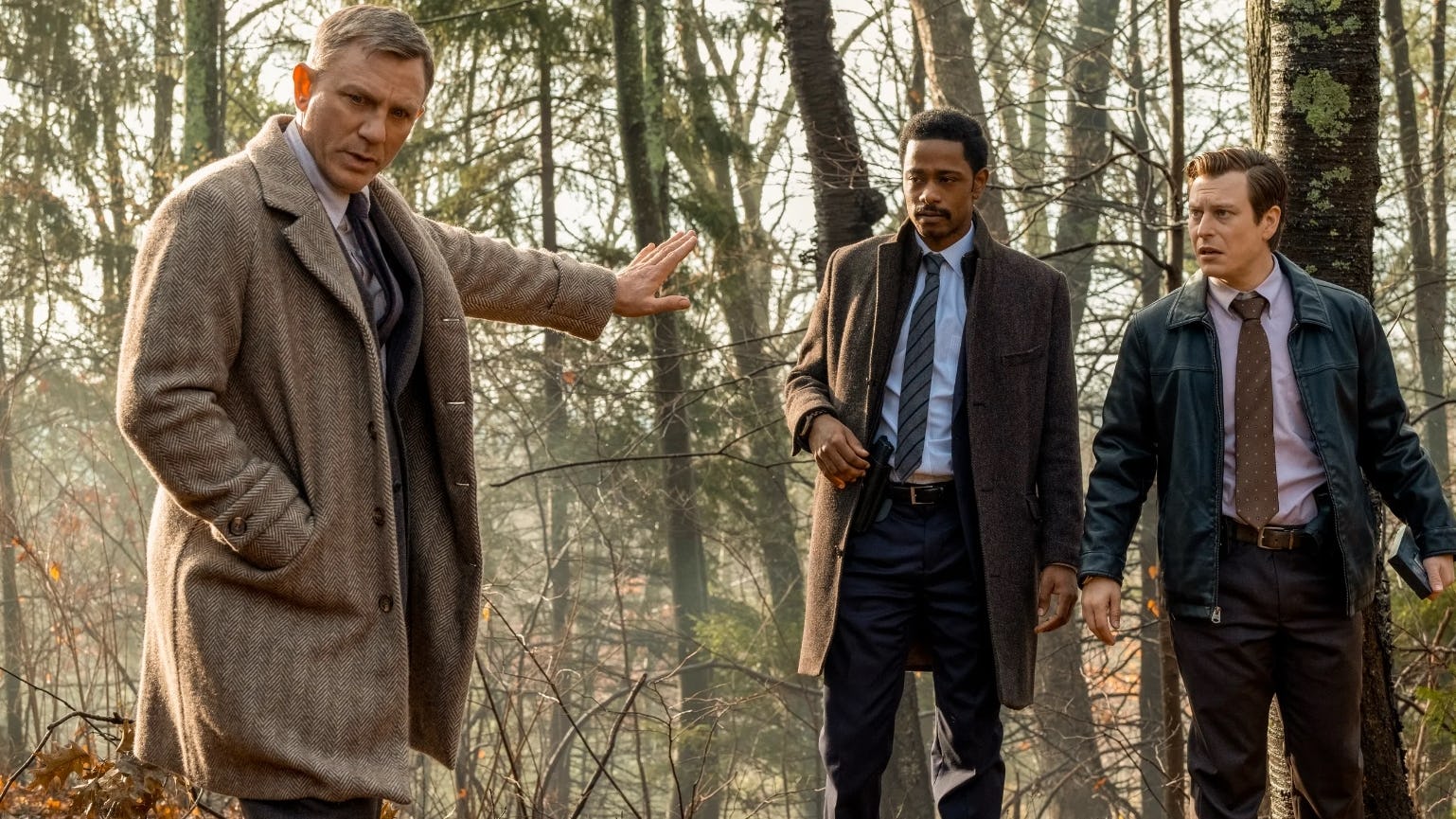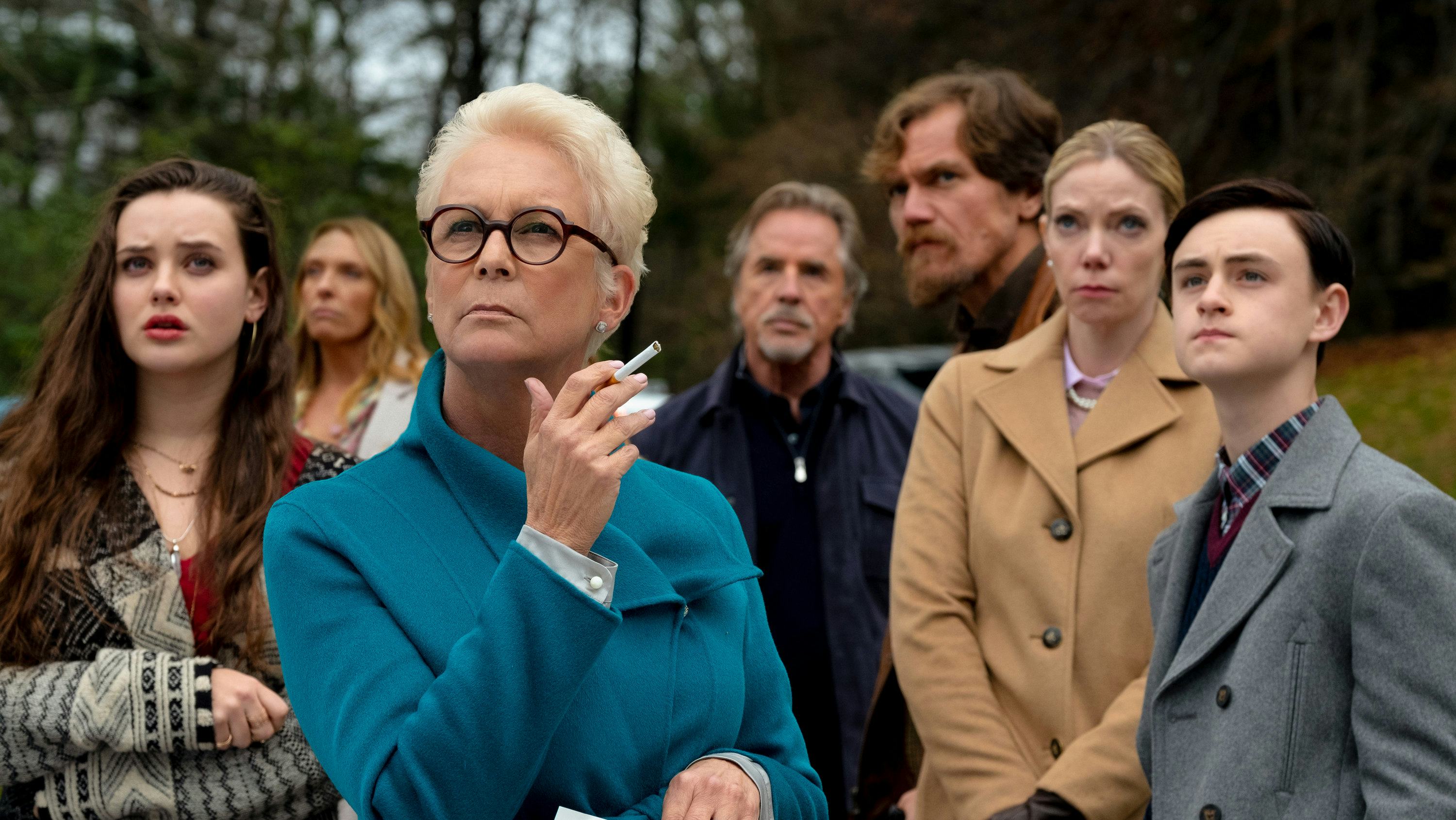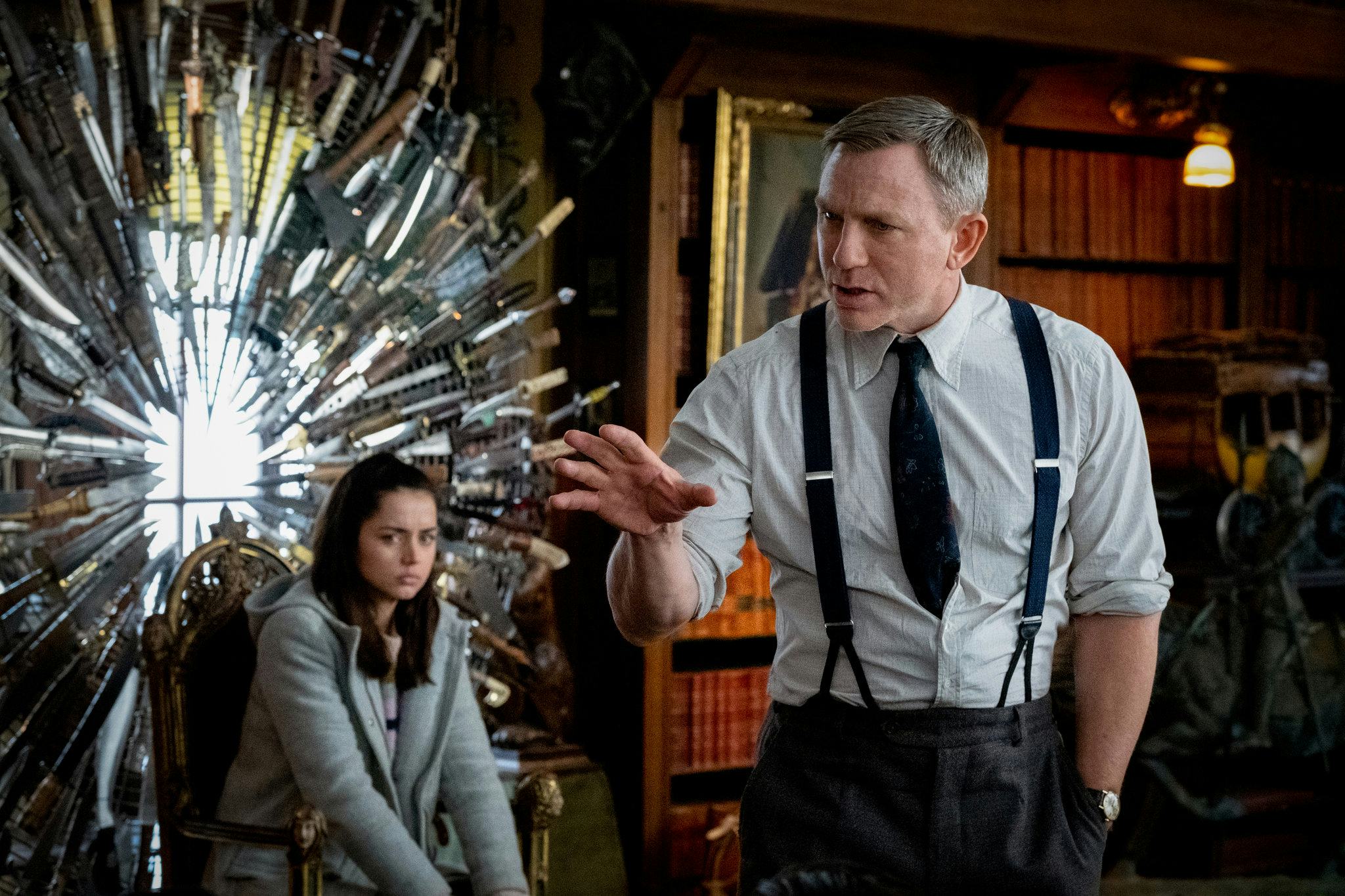
In 2019, Rian Johnson was uniquely placed to revive the whodunit. A longtime fan of the genre, he’d already honed his ability to spin a circuitous yarn with a noir mystery pastiche (Brick) and a zany crime caper (The Brothers Bloom). In the wake of The Last Jedi, he also had the clout to greenlight an original project with a star-studded cast; a rarity in Marvel-era Hollywood, where most studios prioritize very little but franchise blockbusters or Oscar bait.
With Knives Out, Johnson put a contemporary spin on a formula that never deserved to go out of style: an elaborate puzzle of a plot, a charmingly eccentric investigator, and an ensemble cast visibly having the time of their lives.
Taking cues from Agatha Christie, most of the film takes place in the cozy New England mansion of elderly novelist Harlan Thrombey (Christopher Plummer), who dies under suspicious circumstances. His obnoxious offspring make up the pool of suspects, positioning his nurse Marta (Ana de Armas) as the only sympathetic person in Harlan’s life. Called in by an anonymous benefactor, private detective Benoit Blanc (Daniel Craig) quickly ascertains that all of Harlan’s heirs have plausible motives.
The contrast between relatable working-class Marta and her self-absorbed employers couldn’t be more obvious, setting the scene for some amusingly explicit commentary on American class divides. Here, Johnson departs from Christie, who wasn’t exactly a champion of the common man. Knives Out instead draws inspiration from Columbo, whose detective specialized in outwitting the rich and famous. While Columbo used his scruffy appearance and jovial manner to lull people into a false sense of security, Blanc is a different kind of dark horse, presenting himself as a larger-than-life celebrity guest among his privileged targets.

As a cinematic brand, Benoit Blanc is the first truly iconic new sleuth in decades. Small-screen detectives can’t beat the star power and panache of a former James Bond reinventing himself as a neckerchief-wearing, Foghorn Leghorn-accented raconteur, dropping tongue-twisting dialogue like, “You have a regurgitative reaction to mistruthing.” Daniel Craig is palpably having fun here, slyly cast as the antidote to blockbuster heroes as a man with a big personality and no action scenes.
Likewise, Knives Out thumbs its nose at Hollywood’s obsession with origin stories, introducing Blanc with zero backstory beyond “famous detective.” Viewers don’t need an explanation for the whodunit format, and the important stuff lies in Blanc’s attitude and technique. His tangible scorn for the conceited Thrombey relatives is contrasted with his warm respect for Marta, while his boyish enjoyment of a good mystery is punctuated by his furious drive to correct injustice.
Craig brings the charisma while Johnson delivers a fiendishly sophisticated plot, reminding us why classics like The Thin Man are still so beloved almost a century later. Audiences want to see A-list stars cut loose in bold, unexpected roles. They want to laugh, and, contrary to what many studio executives seem to think, they want to be challenged by smart writing.
Rian Johnson comes out swinging with a slew of instantly hateable suspects: Gwyneth Paltrow-esque New Age egomaniacs, selfish nepo babies, incompetent businessmen, and even a fascist 4chan teen. These archetypes are as familiar to us as Agatha Christie’s aristocrats were to readers in the 1930s. Released at the end of the first Trump presidency and the dawn of superhero fatigue, Knives Out arrived with perfect timing, packaging astute political themes with the entertainment value of Ocean’s Eleven.

Watching Daniel Craig lock horns with Jamie Lee Curtis, Toni Collette, and Chris Evans, you begin to wonder why this kind of movie ever went out of fashion. Part of the problem is Hollywood’s resistance to new stories, but there’s also the fact that whodunits are tricky to write. In addition to its distinctive characters and intricate twists, Knives Out revels in sharp social commentary and energetic humor. Very few storytellers can spin this many plates at once.
The years after Knives Out saw a wave of new whodunits in a similar mold take their best shot. Most arrived on TV, where crime fiction reigns supreme; similarly class-conscious, The White Lotus takes place in a chain of luxury hotels, while Mandy Patinkin solved a locked-room murder on an expensive cruise. Johnson himself created Poker Face, starring Natasha Lyonne as a spiritual successor to Columbo. Then there’s CBS’s more conventional Columbo-alike Elsbeth, the beloved Only Murders in the Building, Apple TV+’s genre-savvy The Afterparty, and the more serious A Murder at the End of the World, set in a billionaire’s Arctic bunker.
While fun in their own right, few of these post-Knives Out whodunits measure up to the original. Rian Johnson’s first Benoit Blanc movie remains the gold standard, with the reassuring caveat that he plans to keep making sequels until audiences lose interest. Following 2022’s Glass Onion, Blanc will return in Wake Up Dead Man in 2025. With any luck, the franchise will continue to surprise and amuse us all for years to come.







